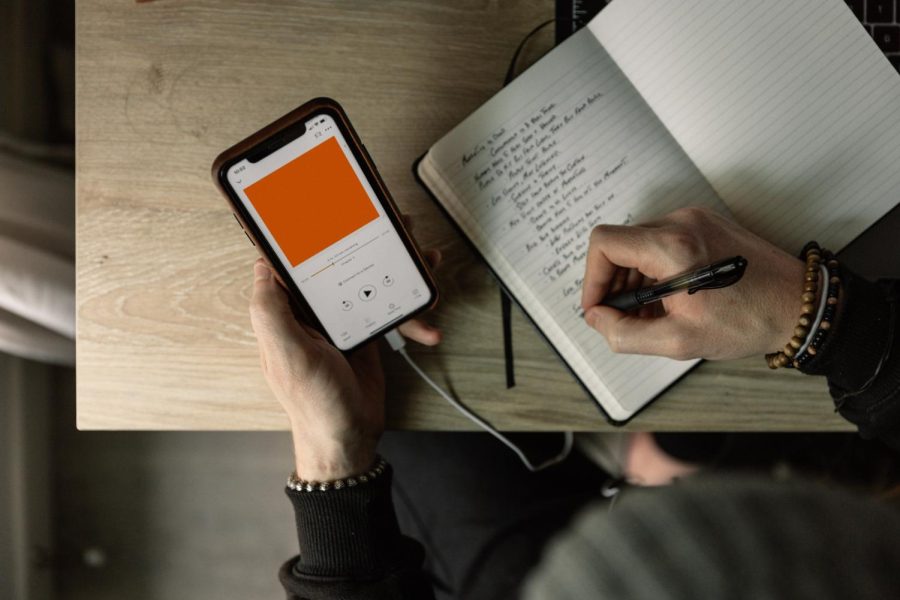Does Music Really Help with Being Productive?
October 21, 2022
Picture this, it’s around 10 pm and that essay is due in two hours. You lock eyes with your monitor, crack your knuckles, and slam yourself onto that chair. With what seems like more than enough time, you blast your favorite music, gliding your fingers across the keyboard and…it becomes a late assignment. But why? You had the perfect setup for a productive homework session; and yet it was all for naught.
Well, there was one critical error you made that doomed you to failure: your choice of music. The choice to play your favorite rapper or turn on some R&B was the difference between turning your essay in on time and losing points because it was late. But why? Why would something as simple as music choice make a difference in productivity?
In order to answer this, it’s best that we first answer the question: Does music make you more productive? An article written by Dean Burnett from The Guardian says that, the way that the brain works is that there are two attention systems: a conscious system that really lets us focus on a task and an unconscious system that draws our attention toward the little distractions around us. The sound of a fan blowing in your room or the vibration of your phone as you get a text are examples of things that affect the unconscious attention system. These systems work in tandem, and the unconscious system often causes us to lose focus while working.
To combat this loss of focus, people turn to music or turn on any form of listenable entertainment because they think it will help them block out all of the other distractions and replace them with one. In theory, this should cause your attention system to not be interrupted by any outside distractions and allow you to effectively work on whatever task you have.
But in reality, that’s not the case. When you turn on that show or play your favorite music, you either pay less attention or no attention to your work because your brain would rather listen to your favorite song or the sports game in the background than focus on writing an essay.
So is that it? Music is simply bad for productivity, and people must work in silence and just accept it. Well, this is not necessarily true. In fact, an article by Zaria Gorvett from the BBC states that one specific type of music is especially good for productivity: classical music. An effect known as the Mozart Effect revolves around the idea that listening to a piece created by a genius should make you a genius. It seems far-fetched, but studies show that when looking at the brain of a person while listening to a piece by Mozart reveals that there was an increase in “alpha band” brain waves, waves in the brain that help with processing information.
I was curious if this was true, so I decided to try it out for myself. I tried using classical music for over a week while doing school work. To be honest, it didn’t make much of a difference. At times it seemed as though I was more concentrated, but when I switched to my typical music (R&B, bedroom pop, hip-hop) I felt the same.
In the end, it’s all about finding a balance. Sure there can be all this science behind brain waves and “alpha bands;” but the science doesn’t matter if it doesn’t work for you. It’s all about keeping it honest with yourself. Personally, I like turning on music when doing repetitive work, and complete silence when doing work that really requires me to think.
Maybe you’re different. Maybe you like having a concert while doing equations or you believe in the science of classical music. But the next time you work, ask yourself whether you really need music in the background or if it’s better to listen to the sound of silence.













































